Meta Quest Pro preview: Meet Meta's 'laptop killer'
We go hands-on with the Meta Quest Pro, as the firm banks on turning hardware preferences upside down

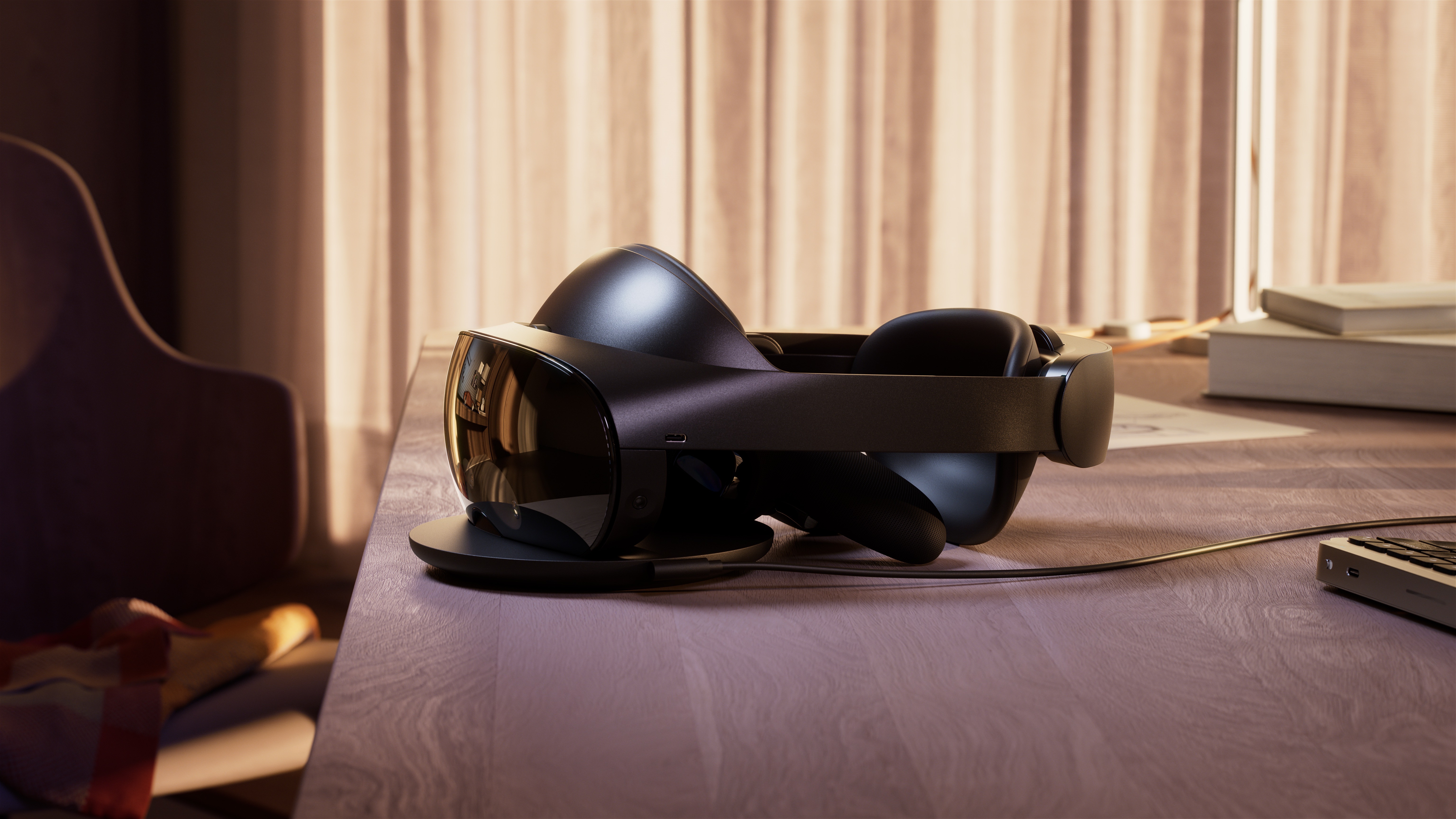
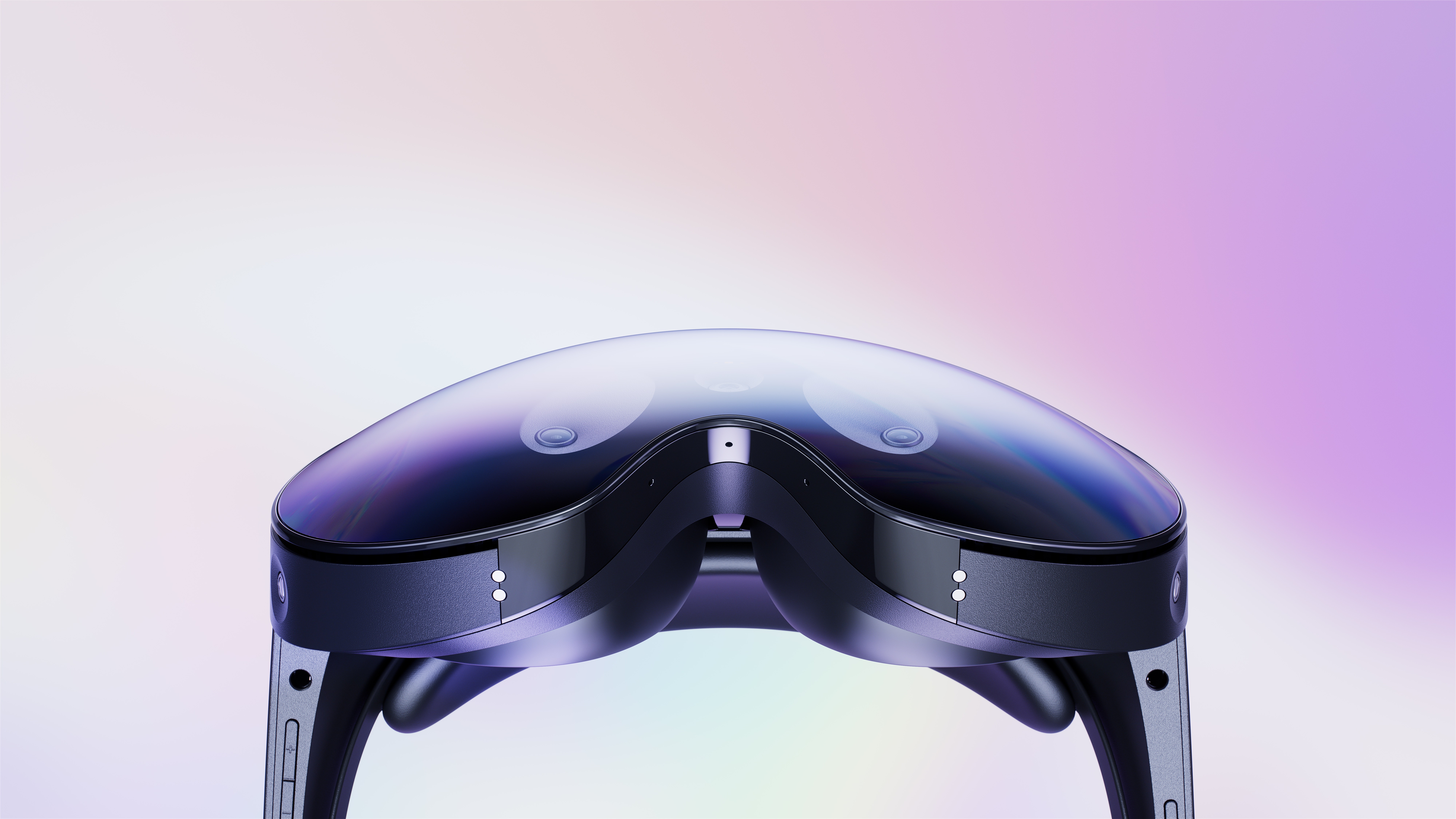
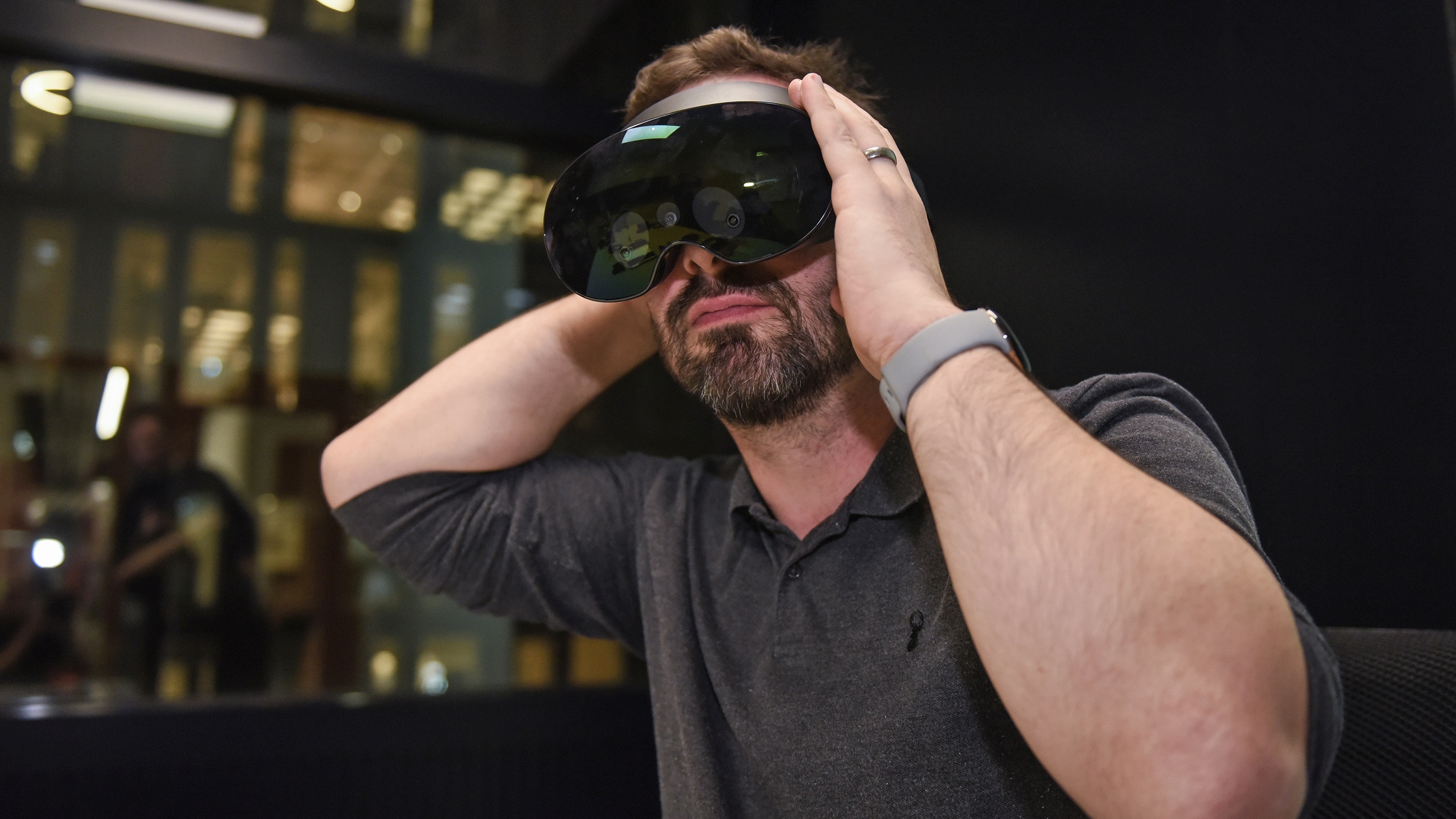
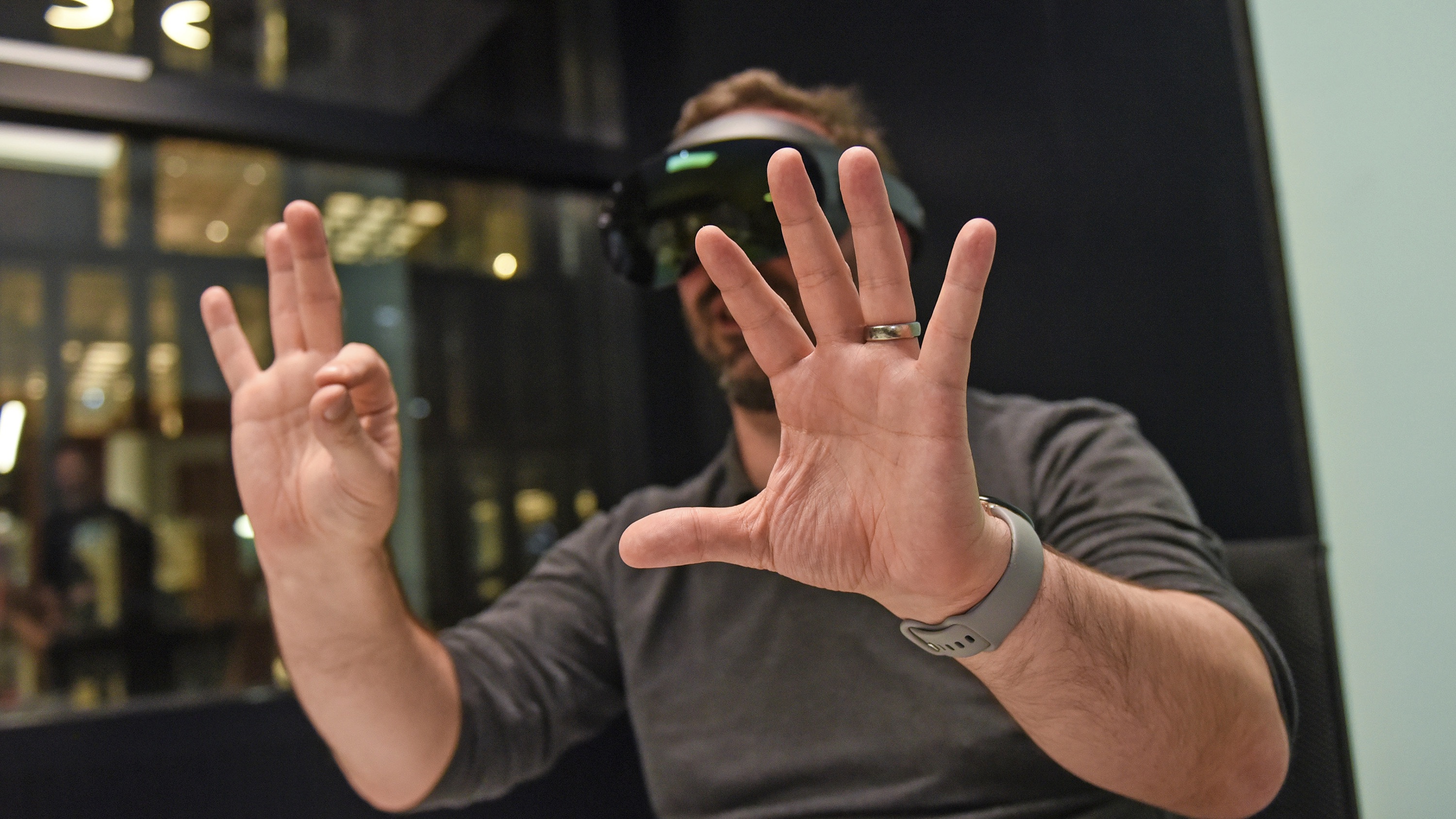
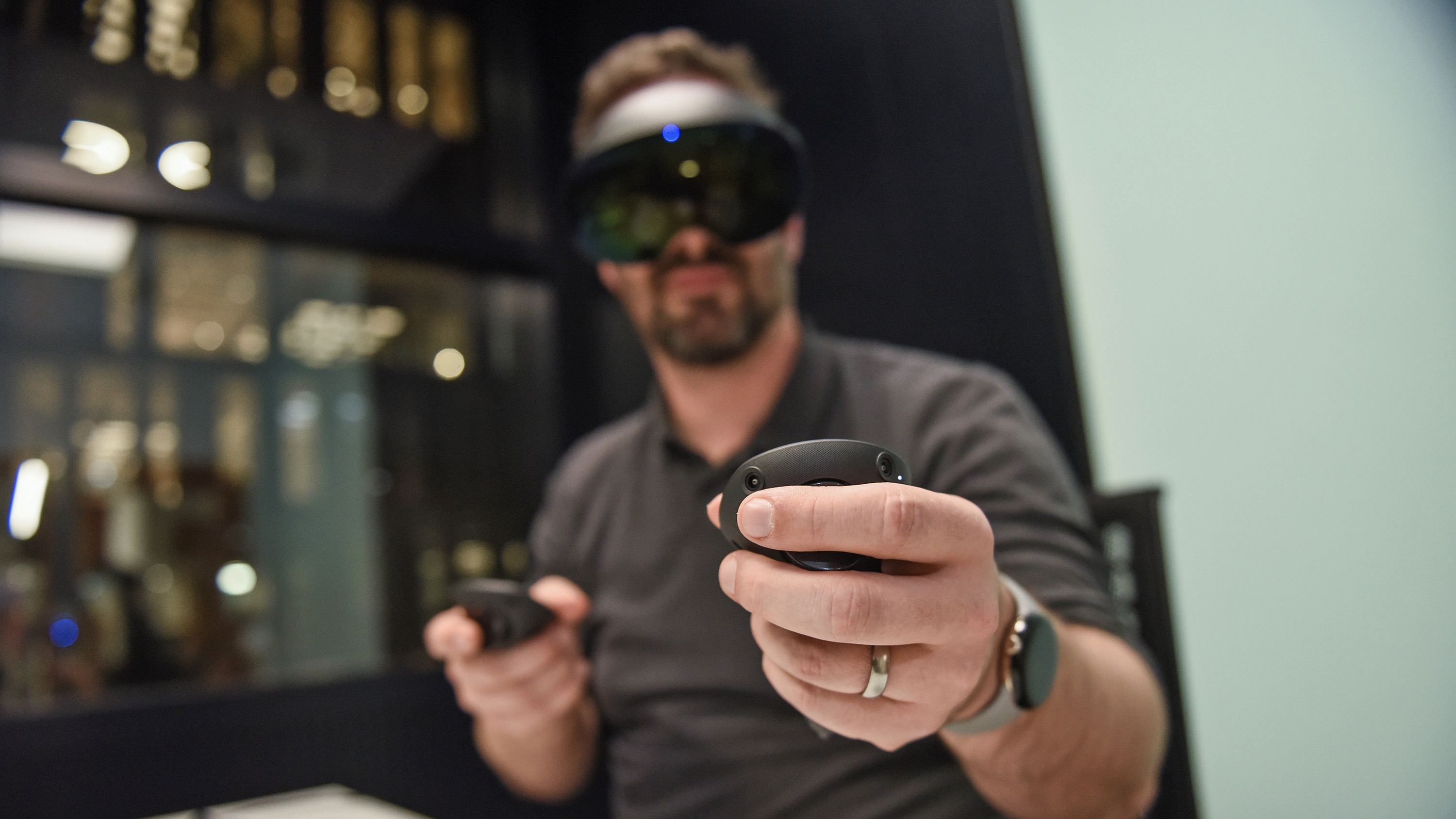
“Businesses will look to adopt VR headsets rather than replacing their laptops.”
“What?”
Steve Hatch, Meta’s VP for Northern Europe had just uttered one of the boldest claims about the metaverse so far. I was eyeing another sausage roll from the buffet table at the time so, at first, I thought I had misheard him. I was at Meta’s King’s Cross office with a cohort of other journalists and analysts, hoping to catch a first glimpse of the new Meta Quest Pro headset, and the even newer Horizon Workrooms app – it was a physical media event but we were about to return to the metaverse.
The rise of Meta (née Facebook) is as ballsy a business transformation as there has ever been; billions of dollars have been spent, some 11,000 jobs have been lost, and the name of one of the world’s most influential organisations has been changed – a gambit like no other. Yet, it was the idea of headsets replacing the trusty laptop that made me do a double-take.
Countless questions flooded my mind. For instance, don’t you need the laptop to use alongside the headset? It was hard to rein in my BS detector. At that point, however, I hadn’t actually tried Meta’s new headset, or seen Horizon Workrooms. In fact I hadn’t actually experienced any Horizon applications before. I had nothing to really counter this claim with.

Of course, the claim resurfaced again and again. It was even repeated in Meta’s Future of Work report. It was even backed up with two key stats: the first is that 60% of employees want to see VR headsets in the office by 2024, and the second was that 62% want avatars and virtual collaboration spaces.
The report, which is based on a survey of 2,000 employees and 400 business leaders across the UK and the US, is nowhere near enough people to highlight the global interest in such a risky technology. Meta also consulted experts within, and beyond, the company to define the future of work and, is it any surprise that people who work closely with the firm would highlight the metaverse as a key area.
Get the ITPro daily newsletter
Sign up today and you will receive a free copy of our Future Focus 2025 report - the leading guidance on AI, cybersecurity and other IT challenges as per 700+ senior executives
Nevertheless, in a short space of time, the metaverse has become the tech industry’s buzziest buzzword. Perhaps it highlights the influence of Mark Zuckerberg, who has pushed this concept into the global lexicon. Now, seemingly all companies want to be operating in this three-dimensional version of the internet. The seriousness of the pitch is underlined by a softer approach, however, as it’s no longer “move fast and break things”. Instead the company is going slowly, predicting it will take years for its vision to come to fruition, also stressing that it won't be one organisation that builds this idea – but many.
Hands-on with the Meta Quest Pro
Meta has such faith in the VR headset that it believes these will be prioritised over laptops in the enterprise space. The product that’s given them this confidence is the Meta Quest Pro, which IT Pro was invited to test. Fellow journalists and analysts were split into groups of four and taken into separate rooms where a Meta hardware specialist ran through housekeeping rules. A headset rested in front of each person sitting at the table.
On first impression, the Quest Pro looks sleek. It’s all-black and feels smooth and cool to the touch. The front section is massive, covering both your eyes and most of your forehead. The headset is also, admittedly, a little heavy. To get the best visual, I found it needed to sit higher on the head, so most of your nose was poking out, although the lenses are adjustable if you need them closer together or further apart.

Initially it’s comfortable; it’s well padded and it can be tightened with a handy dial at the back. You don’t ever lose the feeling of having a headset on, though, in a similar way to wearing a helmet. After ten minutes, or so, t does become a bit of a burden. Much later, while walking to the tube station, I chose not to put in my earbuds because I could still feel the headset’s lingering presence.
The Quest Pro is meant to be used untethered, and it comes with two hand-held devices. These look and feel like the handles of fighter planes, with little buttons and joysticks on the top, but there’s also a stylus tip poking out from the bottom so you can doodle on a virtual whiteboard.
With our headsets on, we entered the metaverse or, more specifically, the new Horizon Workrooms platform. The app is still full of cartoonish avatars that don’t have any legs or much business appeal, but the way it works – the actual user experience (UX) and the controls – is very impressive. Without the controls in your hand, you can operate your virtual dashboard by simply pinching your thumb and forefinger. There’s also a beam of light that shoots out of your virtual hand, like Iron Man on battery-saver mode, that you use to select where to sit or change settings.
Other participants appear across tables or rooms, and those without headsets can be accommodated – appearing as a tile like in classic video conferencing. People, oddly, have presence in the virtual world; we all did a little ‘high-five’ test and I felt like the person next to me was next to me in real life, even though they were physically much further away. I could also hear the warm brummie accent of IT Pro freelancer Mark Samuels, although I was 100% sure he wasn’t in my room. Engagement, quality UX, spine-tinglingly cool – Horizon Workrooms ticks all those boxes.
Who will own the metaverse?
Despite the intriguing overall experience, I wasn’t totally impressed with the headset, but I am reluctant to leave it with a negative review, as it’s still an idea in its infancy. Other companies are producing more attractive wearables in the augmented reality (AR) space, such as Lenovo, with headsets likely to become more streamlined in the form of smart glasses. Many are even holding out hope that smart lenses will kick these concepts into the mainstream. Regardless, Meta remains front and centre. As for whether the metaverse will take off, from a business perspective, that’s still hard to see. Cartoon avatars are a little too silly, and entering this world represents far more effort than simply logging onto a video call with your… laptop.

It will be interesting to see where Microsoft goes with regards to the metaverse. CCS Insight chief analyst Ben Wood, also in attendance, pointed out something to me that, admittedly, softened my stance on working in the metaverse. Microsoft is meant to be a competing company (have we all forgotten Hololens?), yet it’s partnered with Meta to bring Mesh for Microsoft Teams into the metaverse. Essentially, the Quest Pro and Horizon could just be another vehicle through which people can access Microsoft Office, Wood suggests.
Admittedly, the Quest Pro has its faults, and the hardware component of the metaverse is still in need of a definitive final form. Meta might very well tank its business before its laptop predictions can be proven right, but the ideas are starting to stick.
Bobby Hellard is ITPro's Reviews Editor and has worked on CloudPro and ChannelPro since 2018. In his time at ITPro, Bobby has covered stories for all the major technology companies, such as Apple, Microsoft, Amazon and Facebook, and regularly attends industry-leading events such as AWS Re:Invent and Google Cloud Next.
Bobby mainly covers hardware reviews, but you will also recognize him as the face of many of our video reviews of laptops and smartphones.
-
 Bigger salaries, more burnout: Is the CISO role in crisis?
Bigger salaries, more burnout: Is the CISO role in crisis?In-depth CISOs are more stressed than ever before – but why is this and what can be done?
By Kate O'Flaherty Published
-
 Cheap cyber crime kits can be bought on the dark web for less than $25
Cheap cyber crime kits can be bought on the dark web for less than $25News Research from NordVPN shows phishing kits are now widely available on the dark web and via messaging apps like Telegram, and are often selling for less than $25.
By Emma Woollacott Published
-
 New Microsoft Teams features for business users
New Microsoft Teams features for business usersIn-depth All the latest Microsoft Teams features after the platform is given a redesign, complete with an AI-powered assistant and a faster engine
By Danny Bradbury Published
-
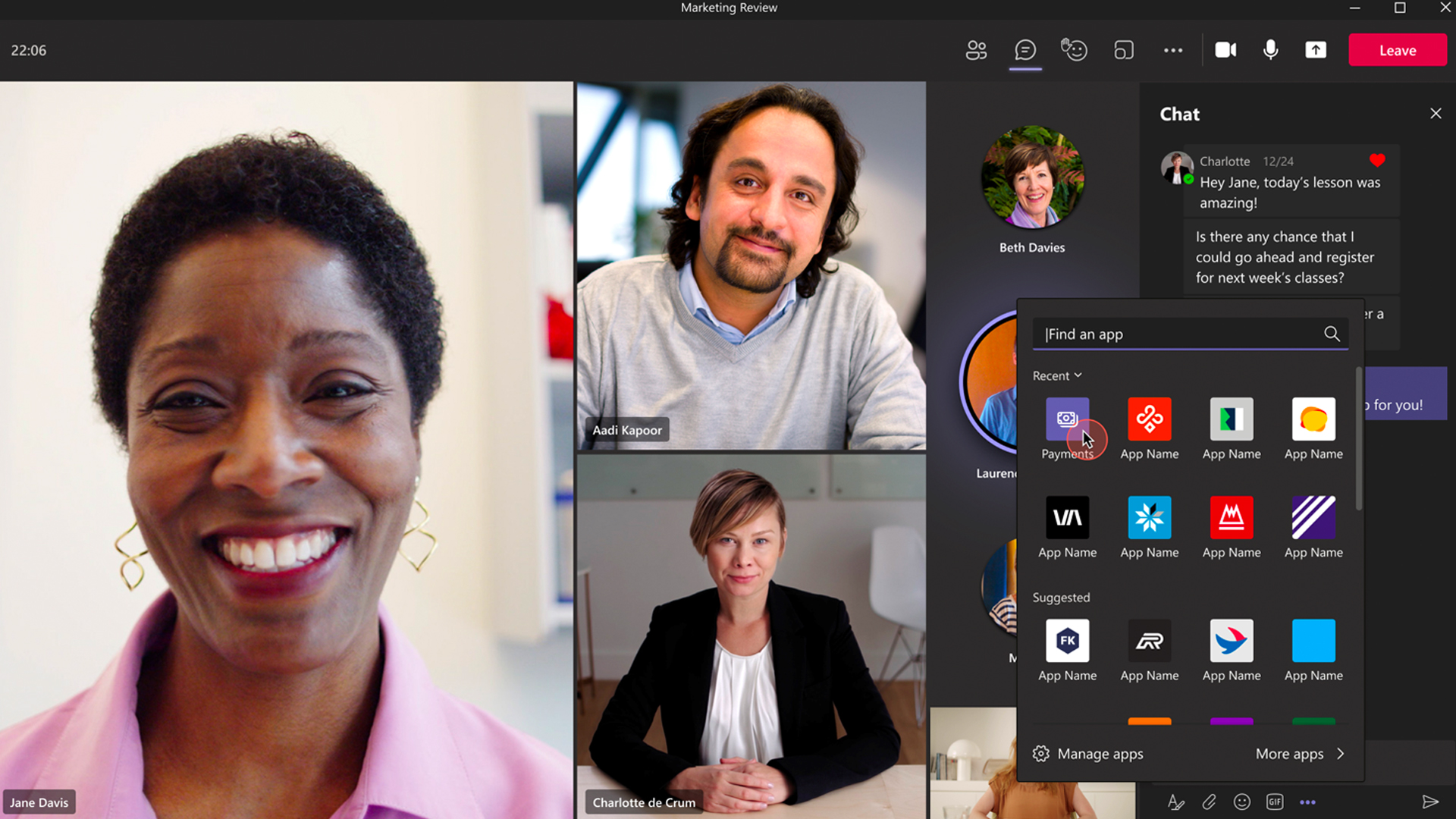 Microsoft Teams now allows SMBs to collect payments in meetings
Microsoft Teams now allows SMBs to collect payments in meetingsNews With the help of PayPal, Stripe, and GoDaddy, the Microsoft Teams Payments app offers in-meeting payment requests
By Connor Jones Published
-
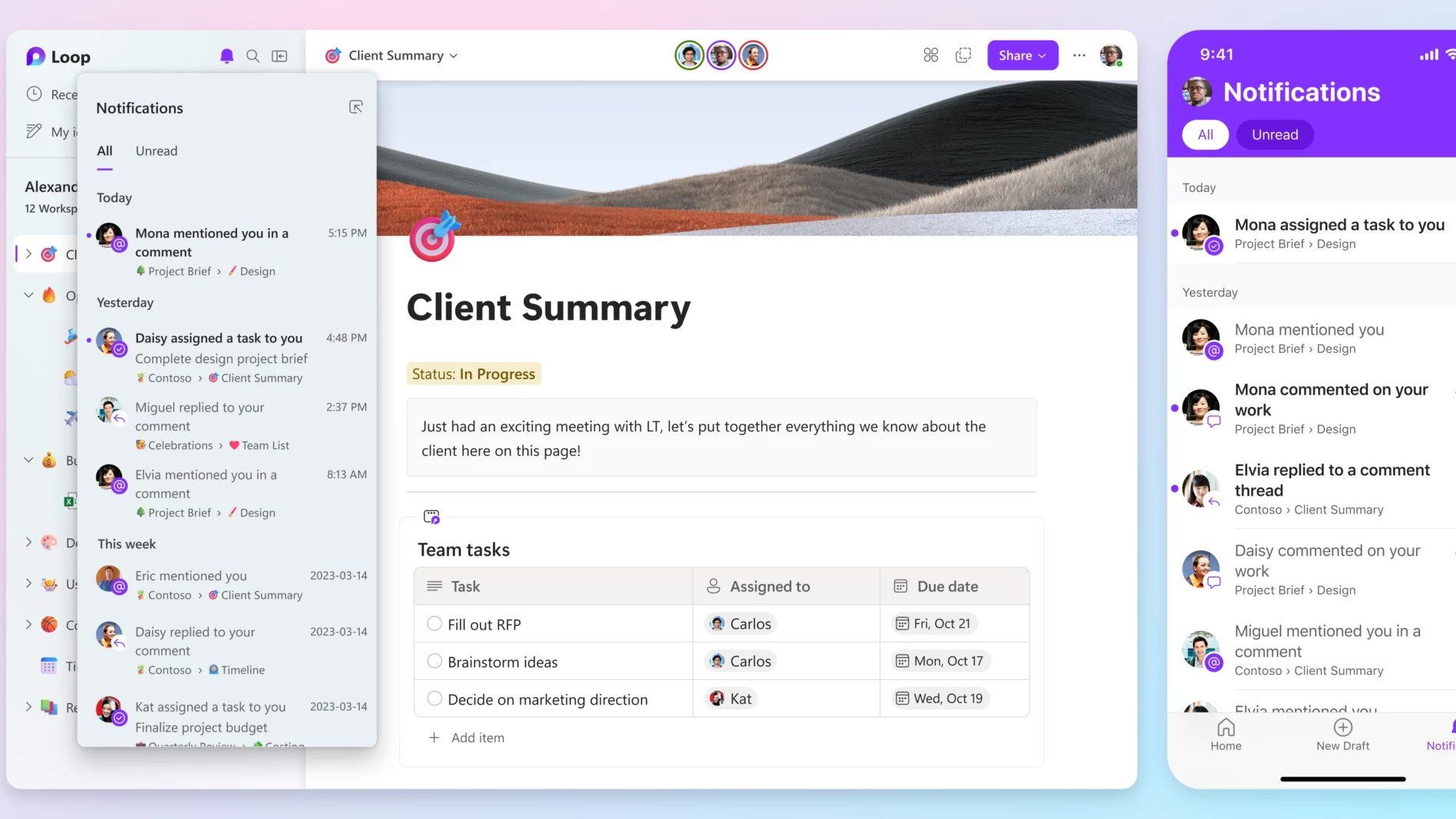 Microsoft launches collaboration platform Loop, its answer to Notion
Microsoft launches collaboration platform Loop, its answer to NotionNews Greater collaboration tools are coming to the Microsoft 365 suite, aiming to help teams work together without having to jump between different apps
By Zach Marzouk Published
-
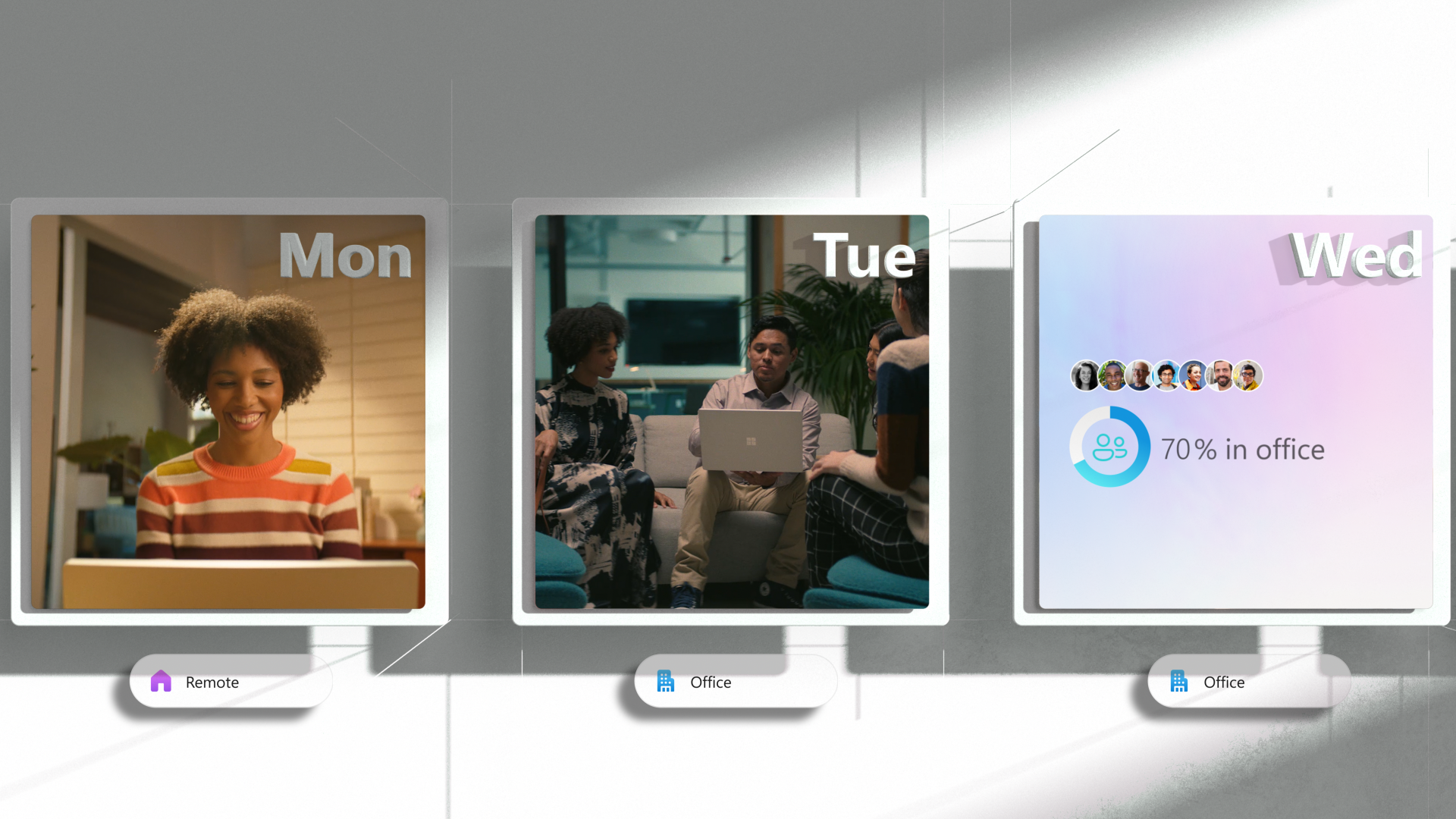 Microsoft launches Places, includes GPS-style navigation to help find meeting rooms
Microsoft launches Places, includes GPS-style navigation to help find meeting roomsNews The new app built specifically for organisations adopting a permanent hybrid work model brings new features to manage people and the workplace itself
By Connor Jones Published
-
 The IT Pro Podcast: Enabling bilingual business
The IT Pro Podcast: Enabling bilingual businessIT Pro Podcast How Wales is using digital tech to deliver a greater choice of languages
By IT Pro Published
-
 Podcast transcript: Enabling bilingual business
Podcast transcript: Enabling bilingual businessIT Pro Podcast Read the full transcript for this episode of the IT Pro Podcast
By IT Pro Published
-
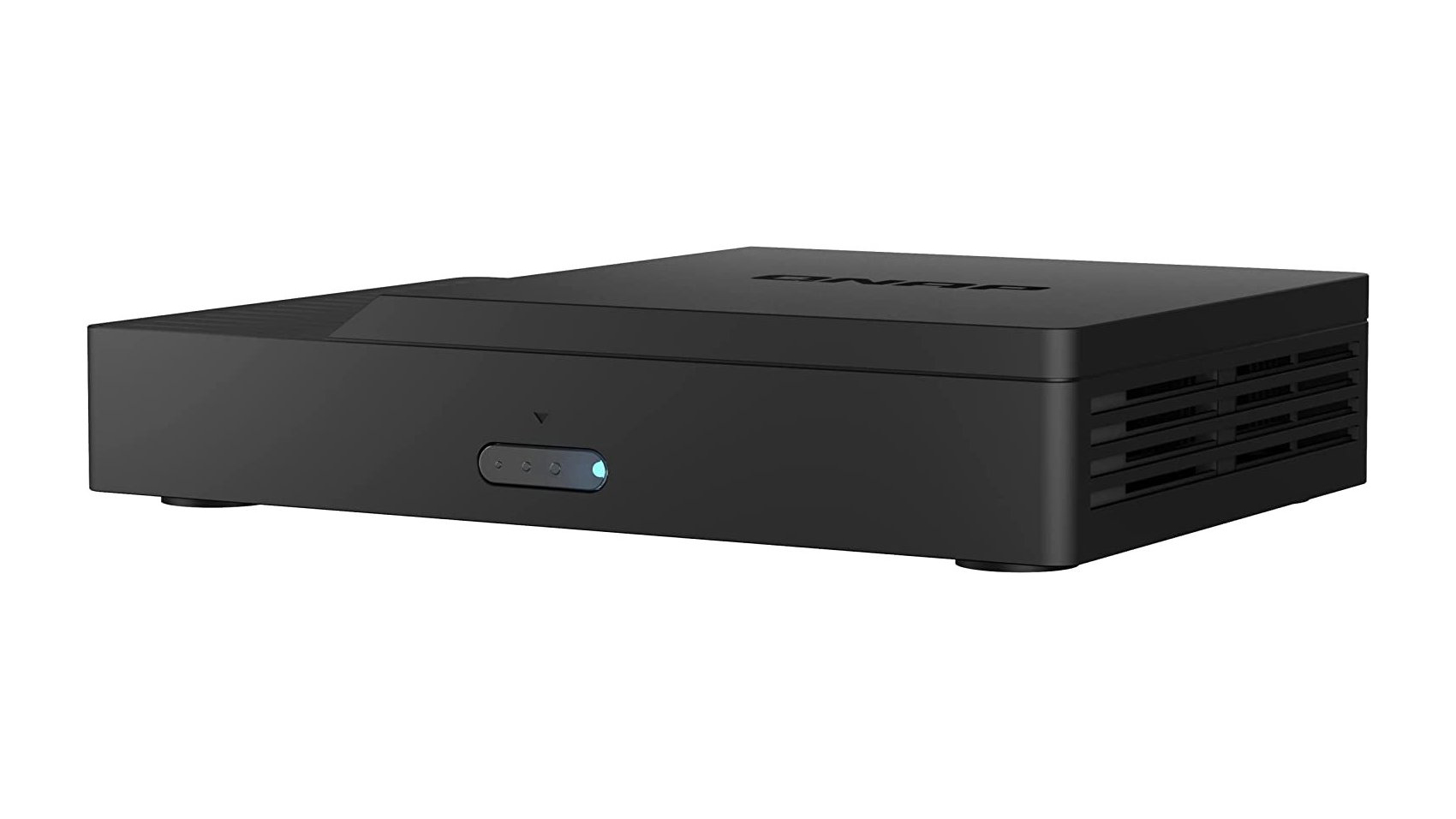
 Qnap KoiBox-100W review: An intriguing alternative
Qnap KoiBox-100W review: An intriguing alternativeReviews A versatile and affordable videoconferencing solution with great wireless screen presentation features
By Dave Mitchell Published
-
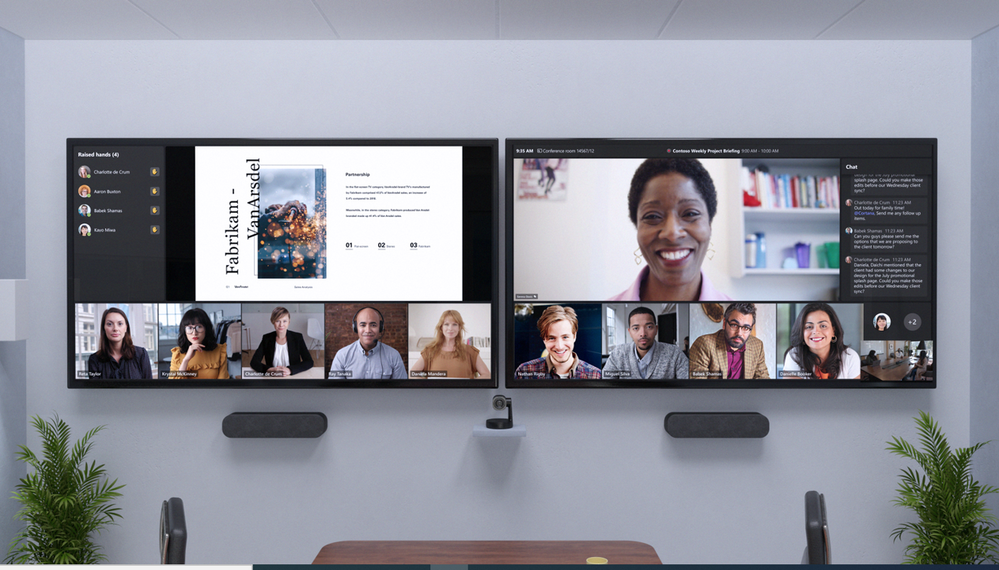 Microsoft reveals price decreases for Teams Rooms, new free tier
Microsoft reveals price decreases for Teams Rooms, new free tierNews Under the new plans, businesses with certified hardware can use the service at no extra cost
By Rory Bathgate Published